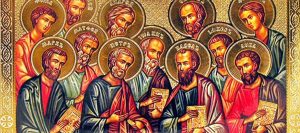 Read: 2 Corinthians 11:31-12:9; Luke 6:31-36
Read: 2 Corinthians 11:31-12:9; Luke 6:31-36
In the Gospel of St. Matthew, Jesus commands us, “Be perfect, just as your heavenly Father is perfect” (Matthew 5:47). In Luke’s Gospel, he commands, “Be merciful, just as your Father is merciful” (Luke 6:36). Mercy, therefore, is perfection. How, indeed, can we, weak and finite human beings achieve “perfection.” How can we keep God’s command.
St. Gregory of Nyssa pondered that problem and asked that question. His response was, that perhaps consists in this: constant growth in the good. It might seem that God is asking the impossible of us today, “love your enemies and do good to them, and lend expecting nothing back.” This goes against every human instinct, yet this is what God demands, for this is how God is merciful. That God is merciful appears on every page of the Scripture, and we pray constantly, “Lord, have mercy.” We cannot ask God’s mercy unless we are merciful. Perhaps the answer to this problem is the same as perfection: we must constantly grow in mercy. If we do not, then we grow in hate. In we seek revenge and retribution, then pain and hate simply grow and grow in a circle of mutual destruction. God’s command is ultimately the only logic of a God who has created all things and loves all.
Today, we must do the impossible, today we must become a Christian, through God’s help. St. Paul tells us that we need God’s grace: “My grace is sufficient for you, for power is made perfect in weakness.” I will rather boast most gladly of my weaknesses, in order that the power of Christ may dwell with me. (2 Corinthians 12:9)
Meditation by Archpriest David Petras
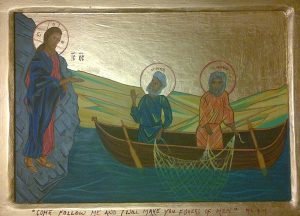 Read: 2 Corinthians 9:6-11; Luke 5:1-11
Read: 2 Corinthians 9:6-11; Luke 5:1-11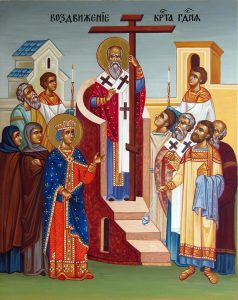 Read: Galatians 2:16-20; Mark 8:34-9:1
Read: Galatians 2:16-20; Mark 8:34-9:1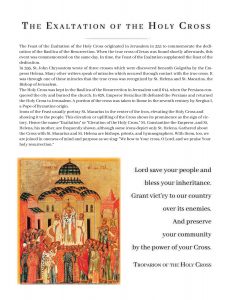
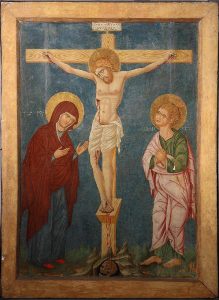 “… let us venerate the wood of Your cross, O friend of men, because on it You have been nailed, Life of all. You opened heaven, O Savior, to the thief who had faith in You; he was worthy of bliss because he confessed to You: remember me, Lord… we have all sinned, for Your love compassion do not despise us.”
“… let us venerate the wood of Your cross, O friend of men, because on it You have been nailed, Life of all. You opened heaven, O Savior, to the thief who had faith in You; he was worthy of bliss because he confessed to You: remember me, Lord… we have all sinned, for Your love compassion do not despise us.”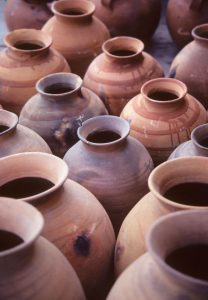 Read: 2 Corinthians 4:6-15; Matthew 22:35-46
Read: 2 Corinthians 4:6-15; Matthew 22:35-46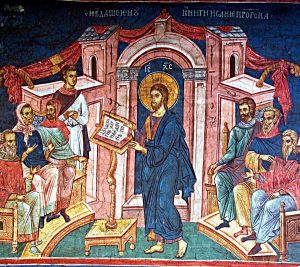 We call this the “Church” New Year, but it was, of course, the civil New Year of the Byzanrine Emperor. The book, Mapping Time,
We call this the “Church” New Year, but it was, of course, the civil New Year of the Byzanrine Emperor. The book, Mapping Time,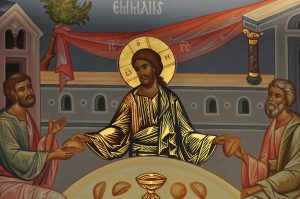 Read: 2 Corinthians 1:21-2:4; Matthew 22:1-14
Read: 2 Corinthians 1:21-2:4; Matthew 22:1-14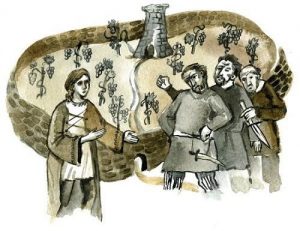 Read: 1 Corinthians 16:13-24; Matthew 21:33-42
Read: 1 Corinthians 16:13-24; Matthew 21:33-42